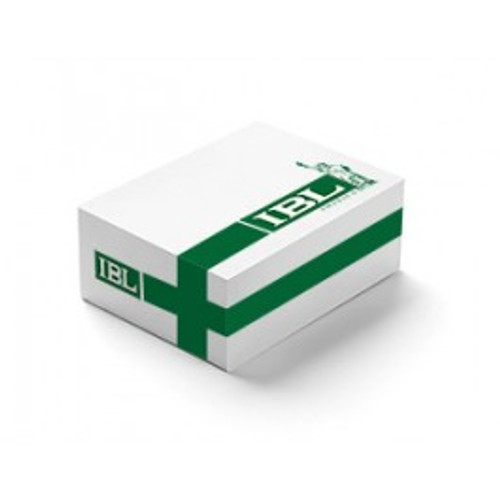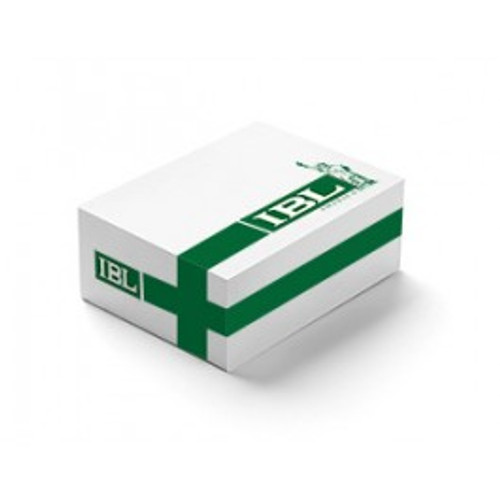Immunoradiometric assay (IRMA) for the quantitative determination of human Insulin (INS) in serum. FDA registered 510(k) Exempt. For In-Vitro Diagnostic Use.
Insulin, a polypeptide hormone with a molecular weight of 5800, is secreted by the beta cells of the islets of Langerhans from the pancreas. Insulin possesses a wide spectrum of biological actions. It stimulates cellular glucose uptake, glucose oxidation, glycogenesis, lipogenesis, protogenesis and the formation of DNA and RNA. Insulin plays a key role in the regulation of plasma glucose levels (hepatic output inhibition, stimulation of peripheral glucose utilization). The resulting hypoglycemic effects of insulin are counterbalanced by hormones with hyperglycemic effects (glucagon, growth hormone, cortisol, epinephrine). Insulin secretion is mainly controlled by the plasma glucose levels : hyperglycemia induces a prompt and important increase in circulating insulin levels. Neural influences, as well as various metabolic and hormonal factors (amino acids, glucagon, gastro intestinal hormone) also participate to the control of insulin secretion.
Type I (insulin dependent : "juvenile") diabetes is due to a destruction of the beta cells, with a consequence of absolute lack of insulin. In type II (noninsulin-dependent : "maturity onset") diabetes, insulin resistance may play an important role; however after several years of evolution, beta-cells failure may occur, leading to a relative insulinopenia requiring, in some cases, insulin administration. Insulin resistance is associated with high circulation levels of the hormone. The most common case of insulin resistance is represented by obesity. Various endocrinopathies (acromegaly, Cushing syndrome) as well as rare cases of insulin receptor defects or cases with anti-insulin receptor antibodies are associated with glucose intolerance or even diabetes due to insulin resistance. The determination of plasma insulin levels is an important parameter in the diagnosis of hypoglycemia. Insulin levels are high in cases of insulinoma (beta-cell tumor). Functional postprandial hypoglycemia may also be associated with inappropriate insulin release to carbohydrate intake.
- Assay Description:
- 2 hours total incubation time
- Catalog number:
- KIP1251
- configuration:
- Reagents sufficient for 96 determinations
- controls:
- 2 controls, lyophilized
- design:
- Radioimmunoassay (RIA) technique
- FDA Status:
- Registered IVD
- MSDS:
- notes:
- The protocol for this product (see above) is intended to serve as an example only. Please refer to the Instructions For Use provided with the assay kit for precise details.
- Protocol:
- Sample types:
- Serum
- Sample volume:
- 50 μL / determination
- standards:
- 6 calibrators, lyophilized
- Standard range:
- 0 / 5.7 - 440 μIU/mL
- storage:
- 2 - 8 °C
- sensitivity:
- 1 μIU/mL
- Species:
- Human
- radioactivity:
- 9.5 µCi (350 kBq)







